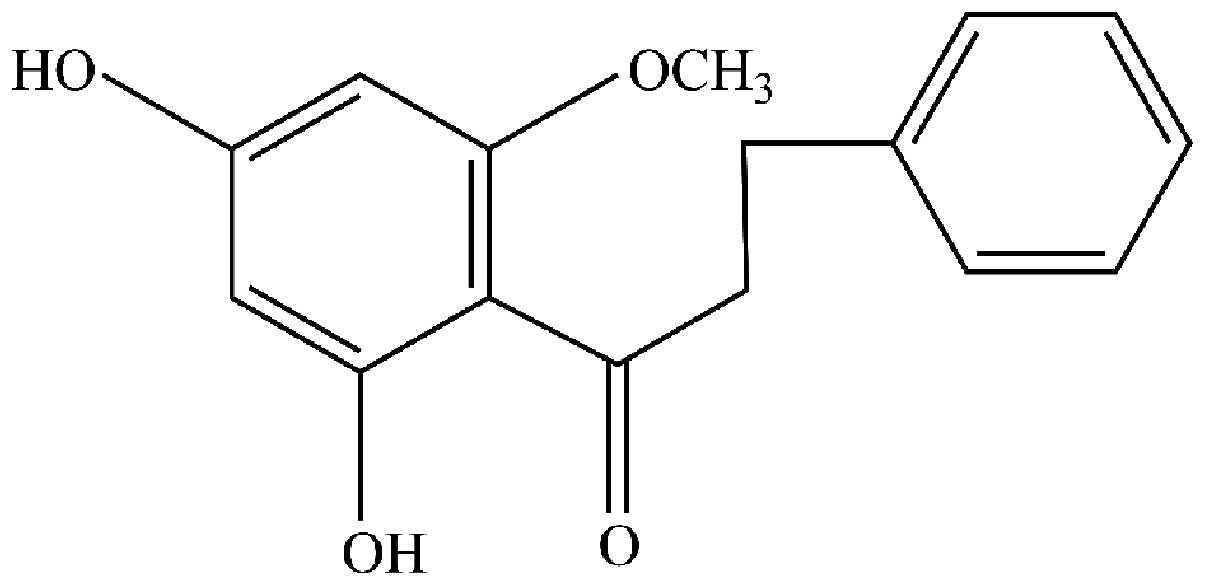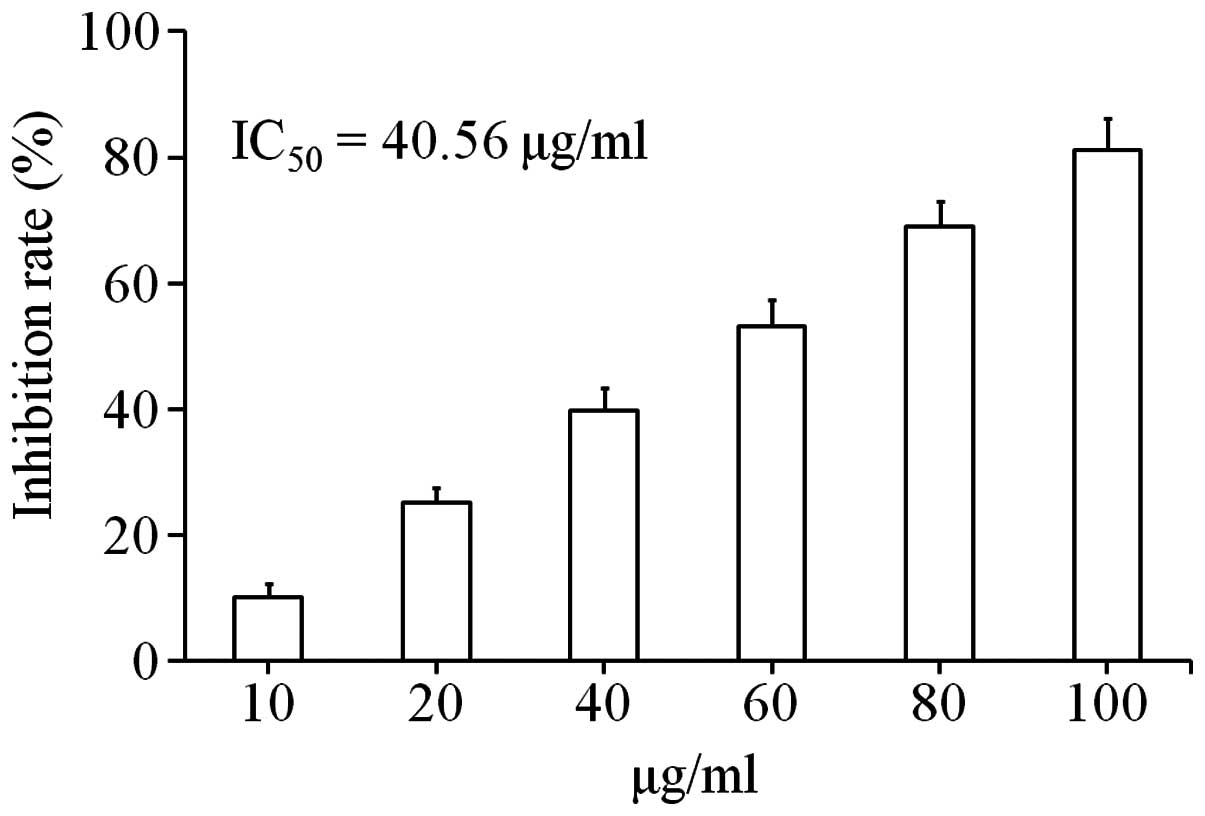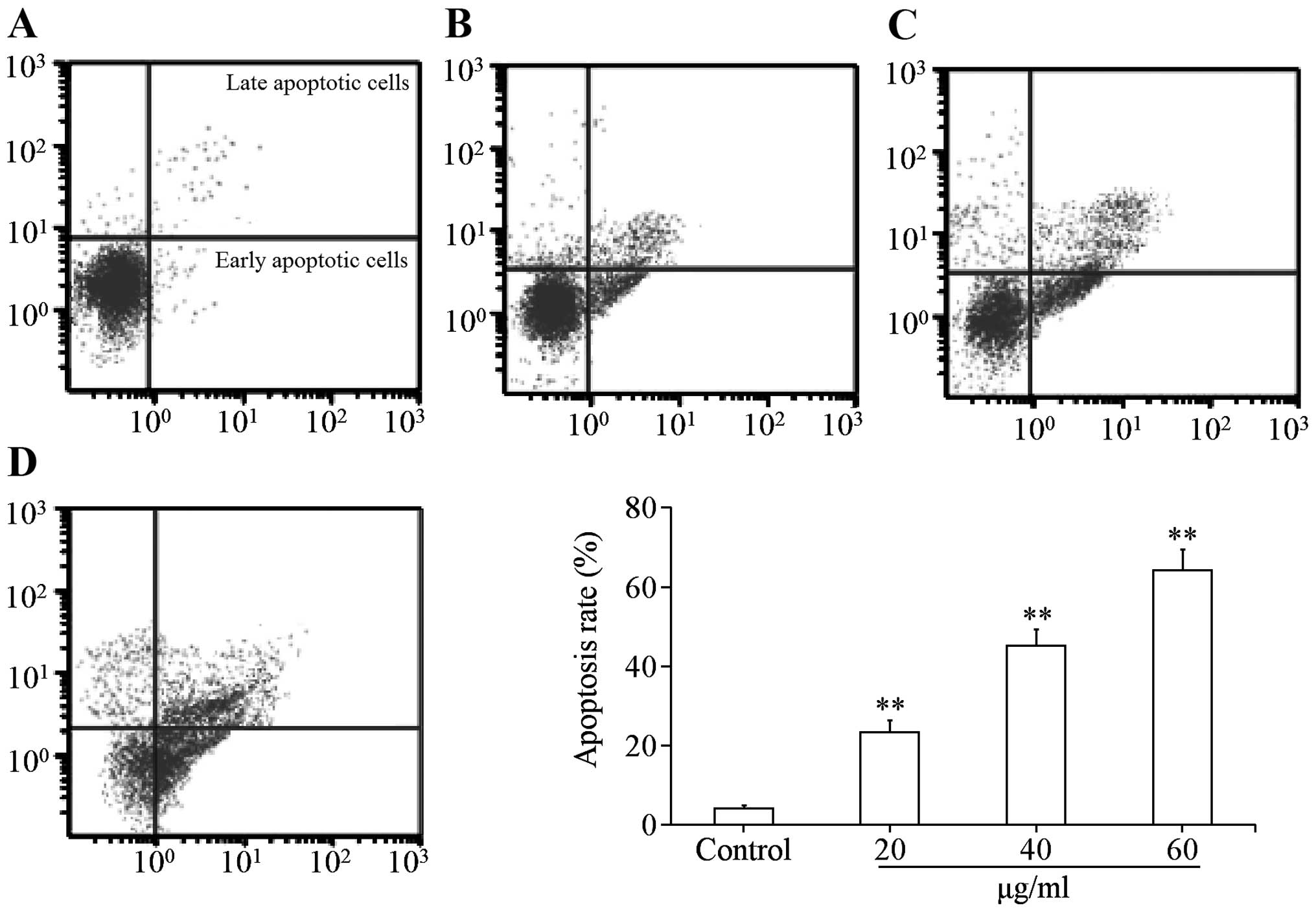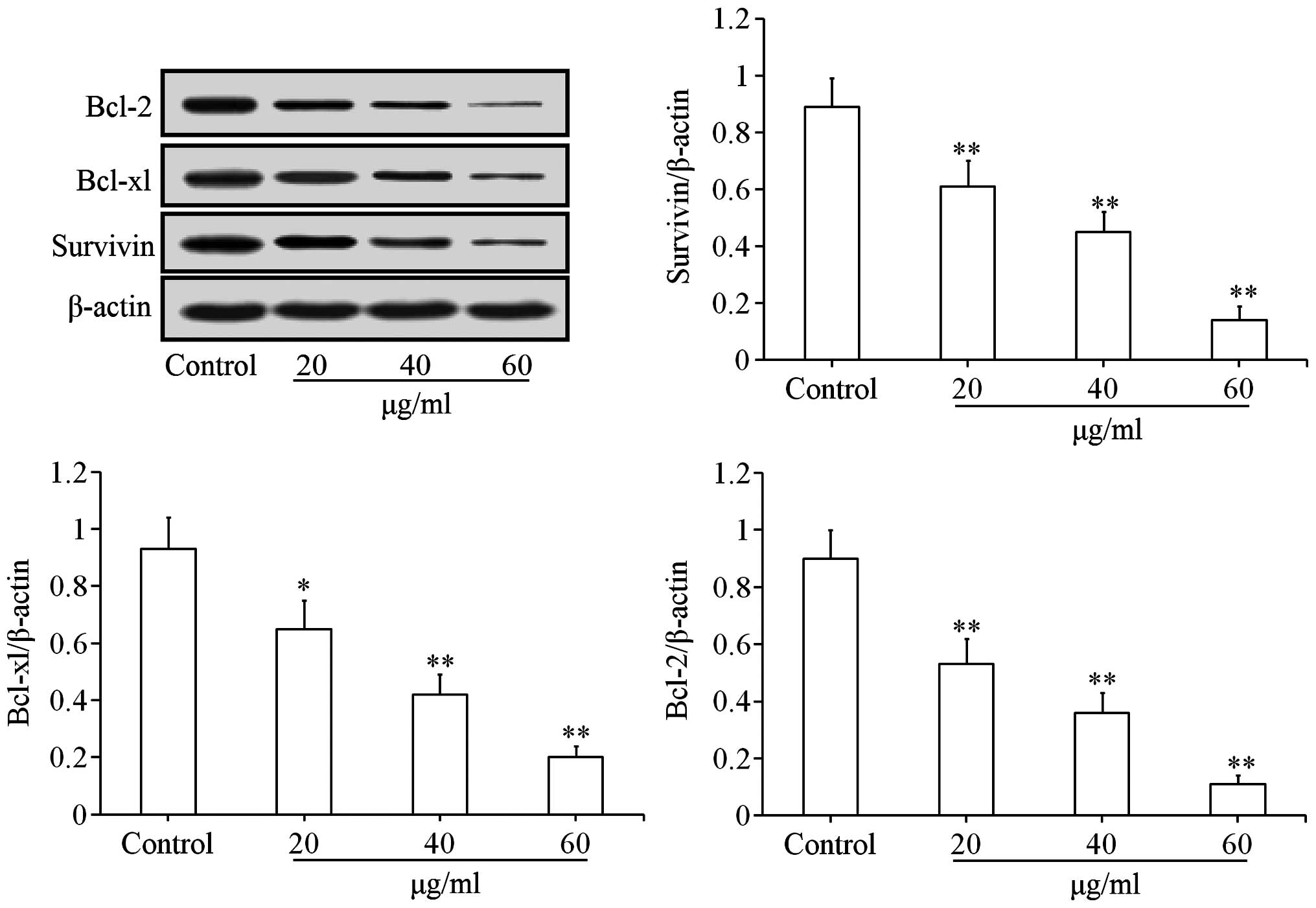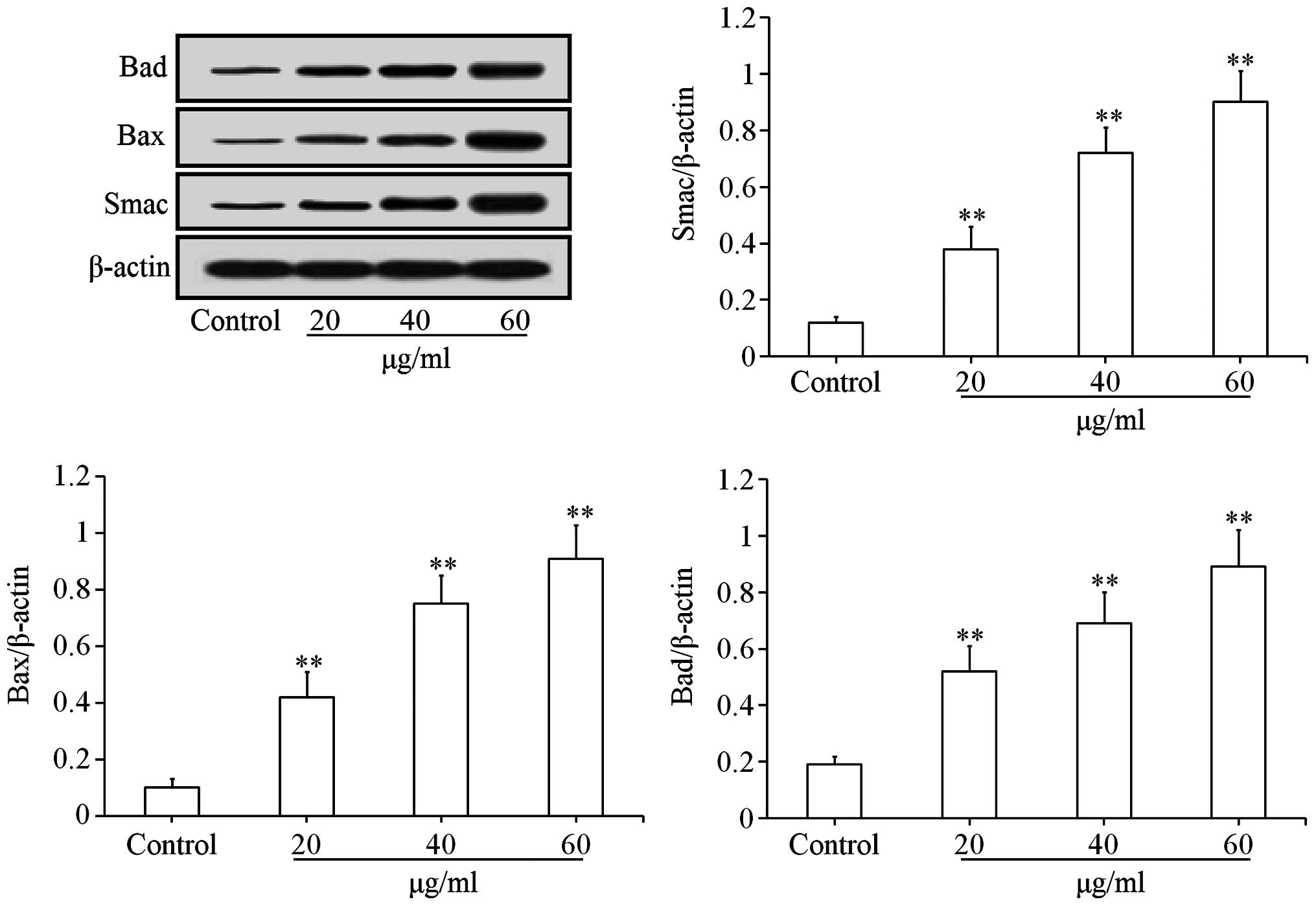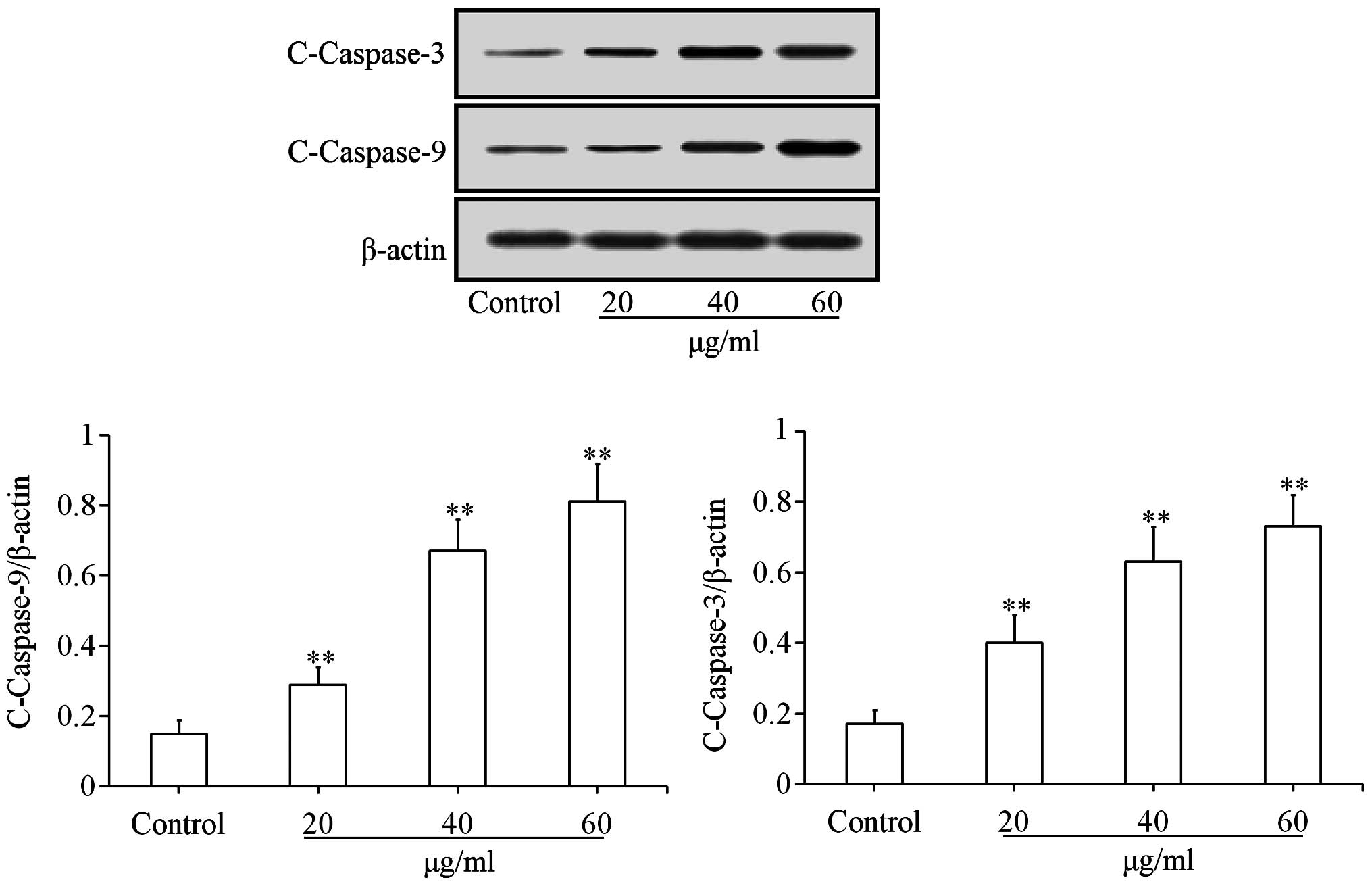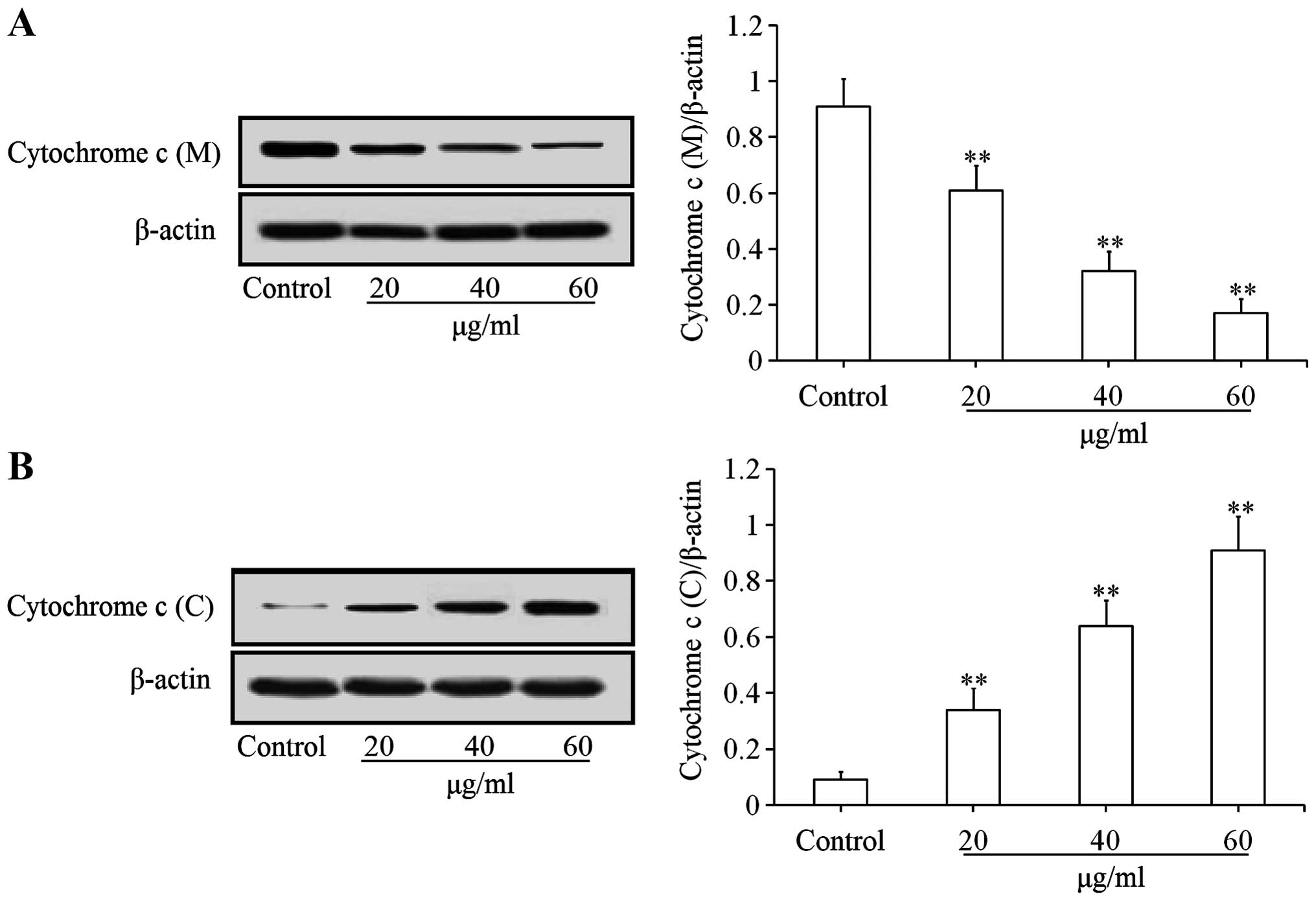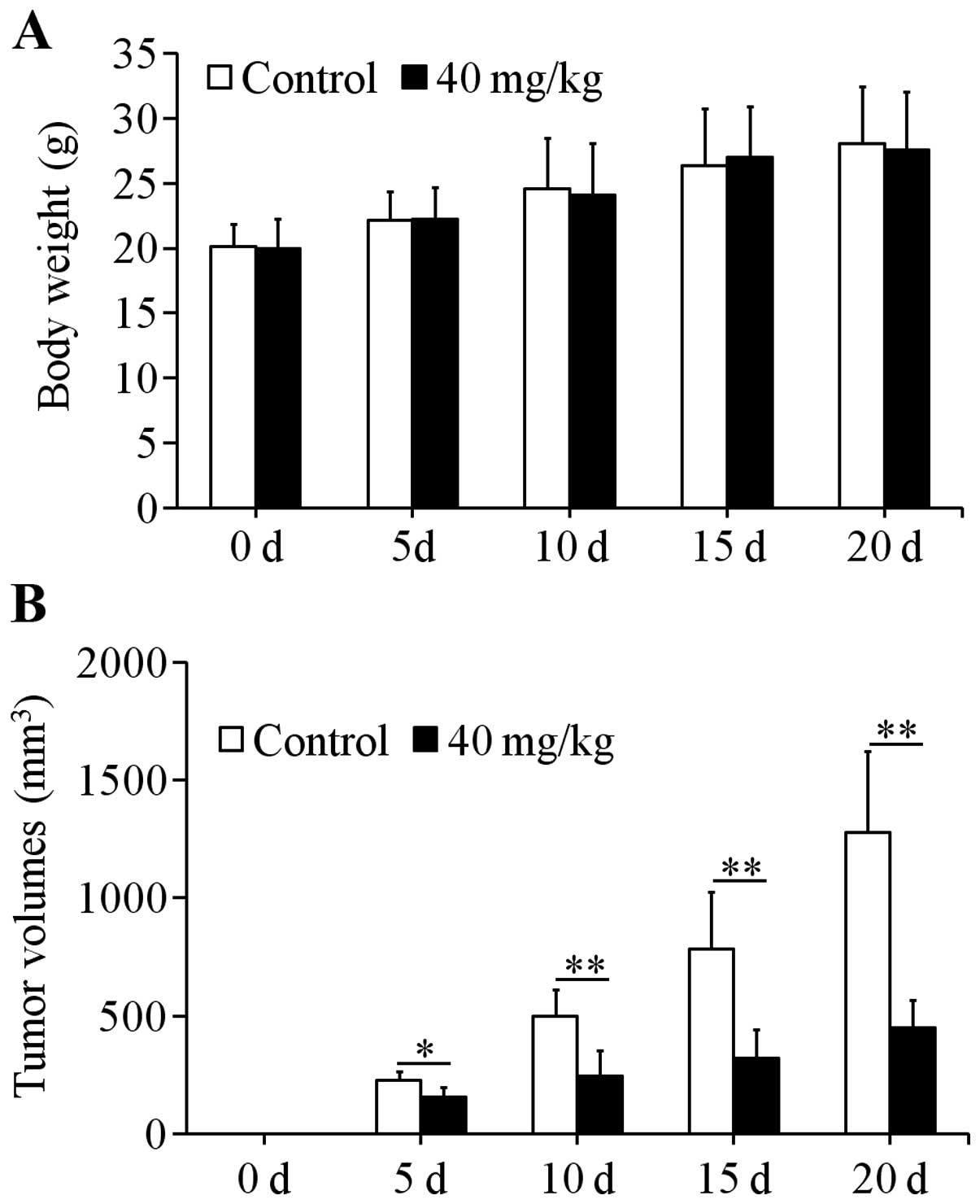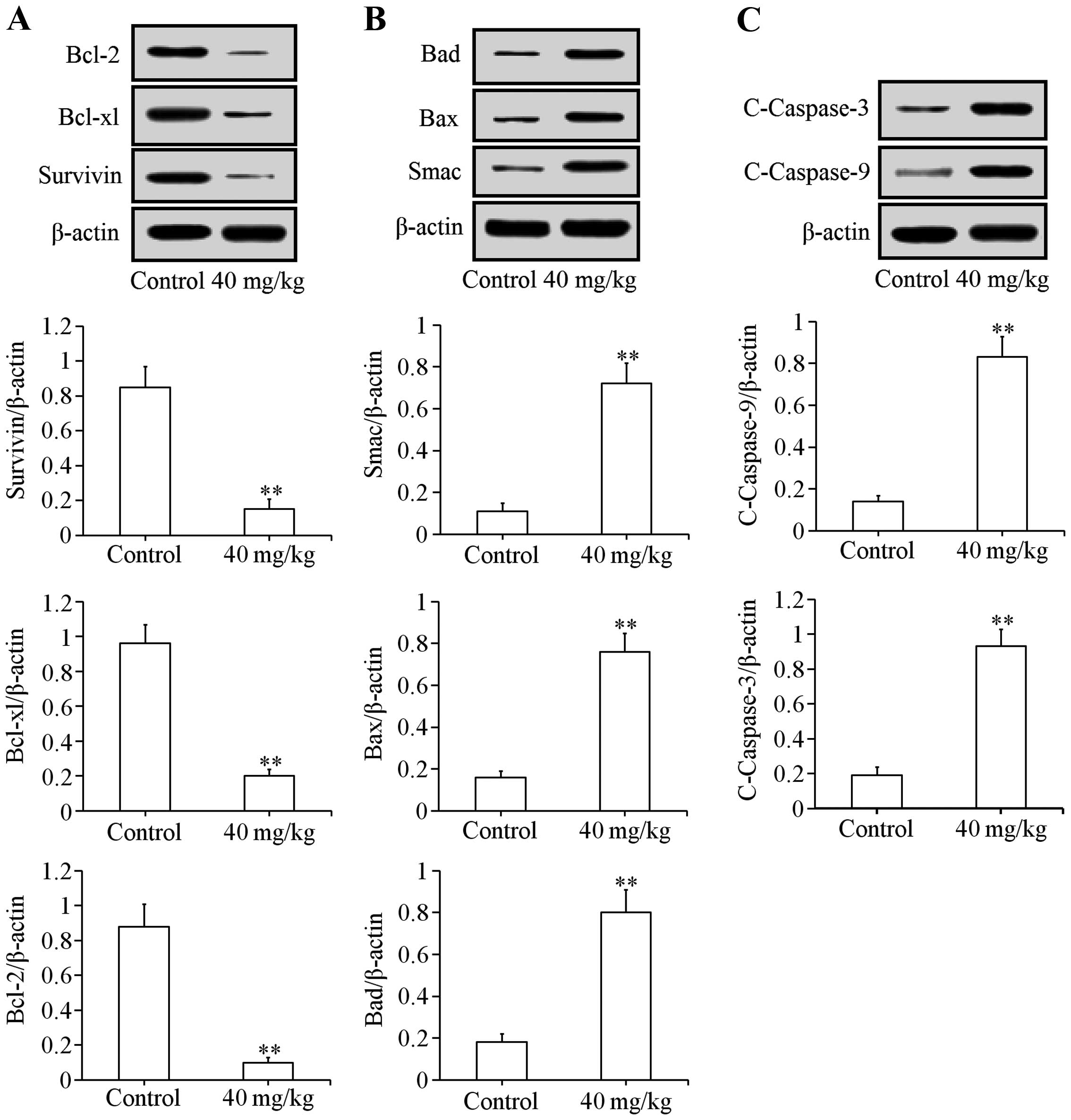|
1
|
Cooke JV: The occurrence of leukemia.
Blood. 9:340–347. 1954.PubMed/NCBI
|
|
2
|
Kadia TM, Ravandi F, O'Brien S, Cortes J
and Kantarjian HM: Progress in acute myeloid leukemia. Clin
Lymphoma Myeloma Leuk. 15:139–151. 2015. View Article : Google Scholar
|
|
3
|
Robak T: Recent progress in the management
of chronic lymphocytic leukemia. Cancer Treat Rev. 33:710–728.
2007. View Article : Google Scholar : PubMed/NCBI
|
|
4
|
Siegel R, Ma J, Zou Z and Jemal A: Cancer
statistics, 2014. CA Cancer J Clin. 64:9–29. 2014. View Article : Google Scholar : PubMed/NCBI
|
|
5
|
Soni G and Yadav KS: Applications of
nanoparticles in treatment and diagnosis of leukemia. Mater Sci Eng
C. 47:156–164. 2015. View Article : Google Scholar
|
|
6
|
Callera F, Callera AF and Rosa ES: Trends
in mortality of adult patients diagnosed with myeloid leukemia from
1994 to 2011 in southeastern Brazil. Rev Bras Hematol Hemoter.
37:7–11. 2015. View Article : Google Scholar : PubMed/NCBI
|
|
7
|
Hahn A, Giri S, Yaghmour G and Martin MG:
Early mortality in acute myeloid leukemia. Leuk Res. 39:505–509.
2015. View Article : Google Scholar : PubMed/NCBI
|
|
8
|
Kassar O, Kallel F, Ghorbel M, Bellaaj H,
Mnif Z and Elloumi M: Acute acalculous cholecystitis complicating
chemotherapy for acute myeloblastic leukemia. Leuk Res Rep.
4:39–41. 2015.PubMed/NCBI
|
|
9
|
Saenz GJ, Hovanessian R, Gisis AD and Medh
RD: Glucocorticoid-mediated co-regulation of RCAN1-1, E4BP4 and BIM
in human leukemia cells susceptible to apoptosis. Biochem Biophys
Res Commun. 463:1291–1296. 2015. View Article : Google Scholar : PubMed/NCBI
|
|
10
|
Pleimes D, Flechsig S and Meyer M: Effect
of IEPA, a novel orally bioavaible small molecule, on
chemotherapy-induced myelosuppression. 57th ASH Annual Meeting;
December 6–9, 2014; https://ash.confex.com/ash/2014/webprogram/Paper76791.html.
|
|
11
|
Choi TY, Lee MS and Ernst E: Moxibustion
for the treatment of chemotherapy-induced leukopenia: A systematic
review of randomized clinical trials. Support Care Cancer.
23:1819–1826. 2015. View Article : Google Scholar
|
|
12
|
Roila F, Herrstedt J, Aapro M, Gralla RJ,
Einhorn LH, Ballatori E, Bria E, Clark-Snow RA, Espersen BT, Feyer
P, et al: ESMO/MASCC Guidelines Working Group: Guideline update for
MASCC and ESMO in the prevention of chemotherapy-and
radiotherapy-induced nausea and vomiting: Results of the Perugia
consensus conference. Ann Oncol. 21(Suppl 5): v232–v243. 2010.
View Article : Google Scholar
|
|
13
|
Zhang Z, Liu W, Zheng Y, Jin L, Yao W and
Gao X: SGP-2, an acidic polysaccharide from Sarcandra glabra,
inhibits proliferation and migration of human osteosarcoma cells.
Food Funct. 5:167–175. 2014. View Article : Google Scholar
|
|
14
|
Zhang Z, Zheng Y, Zhu R, Zhu Y, Yao W, Liu
W and Gao X: The ERK/eIF4F/Bcl-XL pathway mediates SGP-2 induced
osteosarcoma cells apoptosis in vitro and in vivo. Cancer Lett.
352:203–213. 2014. View Article : Google Scholar : PubMed/NCBI
|
|
15
|
Zhou B, Liu KY, Chang J and Cheng CQ:
Advances on chemical constituents and pharmacological activities of
Sarcandra glabra. Chin JMAP. 26:982–986. 2009.
|
|
16
|
Xu YQ, Liu XL, Huang XF and Ge F: Status
and prospect of studies on Sarcandra glaba. Chin Tradit Herbal
Drugs. 42:2552–2559. 2011.
|
|
17
|
Wang F, Yuan ST and Zhu DN: Active
components of antitumor fraction from Sarcandra glabra. Chin J Nat
Med. 5:174–178. 2007.
|
|
18
|
Wang HP, Zhao XX and Tian KY: Dynamic
changes of leukocyte and myelogram in the rat leucopenia model. J
Zhenzhou Univ. 37:439–440. 2002.
|
|
19
|
Xu SY, Bian RL and Chen X: Methodology of
pharmacological experiment. People's Medical Publishing House;
Beijing: 2002
|
|
20
|
Guth PH, Aures D and Paulsen G: Topical
aspirin plus HCl gastric lesions in the rat. Cytoprotective effect
of prostaglandin, cimetidine, and probanthine. Gastroenterology.
76:88–93. 1979.PubMed/NCBI
|
|
21
|
Wang XB, Yang CS, Hua SZ and Kong LY:
Chemical constituents from the seeds of Alpinia katsumadai Hayata.
Chin J Nat Med. 8:419–421. 2010.
|
|
22
|
Hufford CD and Oguntimein BO:
Dihydrochalcones from Uvaria angolensis. Phytochemistry.
19:2036–2038. 1980. View Article : Google Scholar
|
|
23
|
Yuan JL, Wang SM, Lan T, Liu JZ, Wang GH,
Sun QS and Chen H: Studies on anti-hepatoma effect of Gan-Ai-Xiao
decoction. Trop J Pharm Res. 14:1249–1255. 2015. View Article : Google Scholar
|
|
24
|
Dong J, Zhao YP, Zhou L, Zhang TP and Chen
G: Bcl-2 up regulation induced by miR-21 via a direct interaction
is associated with apoptosis and chemoresistance in MIA PaCa-2
pancreatic cancer cells. Arch Med Res. 42:8–14. 2011. View Article : Google Scholar : PubMed/NCBI
|
|
25
|
Shi Y: A structural view of
mitochondria-mediated apoptosis. Nat Struct Biol. 8:394–401. 2001.
View Article : Google Scholar : PubMed/NCBI
|
|
26
|
Wang JL, Gao QL, Wang DC, Wang ZQ and Hu
C: Metformin inhibits growth of lung adenocarcinoma cells by
inducing apoptosis via the mitochondria-mediated pathway. Oncol
Lett. 10:1343–1349. 2015.PubMed/NCBI
|
|
27
|
Beere HM, Wolf BB, Cain K, Mosser DD,
Mahboubi A, Kuwana T, Tailor P, Morimoto RI, Cohen GM and Green DR:
Heat-shock protein 70 inhibits apoptosis by preventing recruitment
of procaspase-9 to the Apaf-1 apoptosome. Nat Cell Biol. 2:469–475.
2000. View
Article : Google Scholar : PubMed/NCBI
|
|
28
|
Chandele A, Prasad V, Jagtap JC, Shukla R
and Shastry PR: Upregulation of survivin in G2/M cells and
inhibition of caspase 9 activity enhances resistance in
staurosporine-induced apoptosis. Neoplasia. 6:29–40. 2004.
View Article : Google Scholar : PubMed/NCBI
|
|
29
|
Chi SP, Bai BK, Xie J, Chen HG, Du L, You
LY and Cheng Y: Study of the effect and mechanism of
Cyclophosphamide on antitumor in animal model. Chin Med Her.
9:20–22. 2012.
|
|
30
|
Huang GC, Wu LS, Chen LG, Yang LL and Wang
CC: Immuno-enhancement effects of Huang Qi Liu Yi Tang in a murine
model of cyclophosphamide-induced leucopenia. J Ethnopharmacol.
109:229–235. 2007. View Article : Google Scholar
|
|
31
|
Feng Y, He QS, Liu W, Zhang YL and Meng
QH: Affection of Xiao Banxia plus Fuling grain on MTL in CINV pigef
plasma. J Liaoning Univ TCM. 11:175–177. 2009.
|
|
32
|
La Casa C, Villegas I, Alarcón de la
Lastra C, Motilva V and Martín Calero MJ: Evidence for protective
and antioxidant properties of rutin, a natural flavone, against
ethanol induced gastric lesions. J Ethnopharmacol. 71:45–53. 2000.
View Article : Google Scholar : PubMed/NCBI
|















